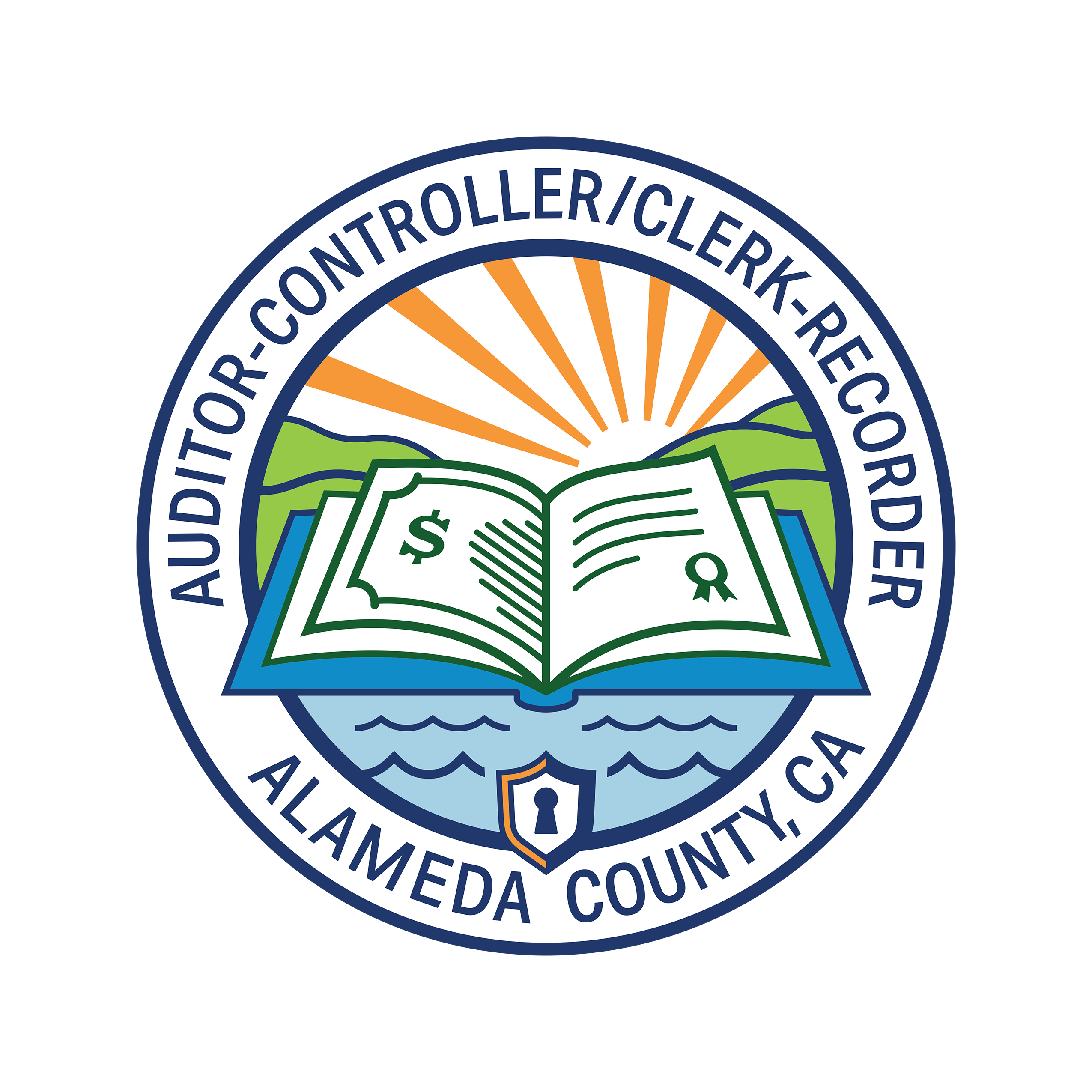
Uncashed Warrants
Claiming Procedures
Individuals & Sole Proprietorships
1. Affidavit with Original Wet Signature
A valid claim must include a signed “Unclaimed Warrant Affidavit for an Individual” for the re-issuance of an Alameda County warrant. Each claim must have a separate Affidavit containing the payee name, warrant number, issue date, and dollar amount. This information needs to be exactly the same as that shown on the original warrant and can be found using the Uncashed Warrants Listing.
2. Valid Government-Issued Photo ID
A copy of a valid government issued photo ID of the person signing the Affidavit is required.
3. Notary Acknowledgement Form with Original Wet Signatures
The Affidavit must be notarized if the claim amount is over $1,000. A notary stamp on the affidavit is not acceptable. The form must be a separate document from the Affidavit. Please see Notary Acknowledgement form here.
4. Original Warrant
- Per Government Code §29802, the original warrant is required when the warrant is over 2.5 years old from the date of issuance.
- Should you be in possession of the original warrant even if it is not over 2.5 years old, please return it along with the completed Affidavit.
5. Proof of Address (if there is change of address)
- The claimant must provide evidence that links the payee to the mailing address listed on the affidavit should it differ from the address listed on the original warrant. Such evidence MUST be original and contain the same name and address as printed on the Affidavit.
- Additionally, the claimant is required to disclose their addresses in the past 3 years on the Affidavit when there is a change of address.
- Please note that neither a Substitute Property Tax Bill nor an Adjusted Property Tax Bill can be accepted as proof of address. Examples of such evidence include the following: driver’s license, original utility bill, original bank statement, etc.
6. Proof of Title (for Sole Proprietorship)
Evidence to substantiate proprietor’s business ownership is required. Examples of such evidence include: a business card displaying the owner’s title, a business license showing the fictitious business name (DBA), etc.
7. Power of Attorney (for third party claims)
- If the payee utilizes a third-party agent (such as an asset recovery company) to file a claim, the agent must use the Unclaimed Warrant Affidavit for an Individual to file an uncashed warrant claim.
- A notarized Power of Attorney document MUST be submitted to the County and signed by the payee.
- A copy of a valid government issued photo ID of the person signing the Power of Attorney is required.
- Warrants reissued via third party claims will be made payable to the original payee and will be sent to the original address on the warrant unless there is a change of address.
